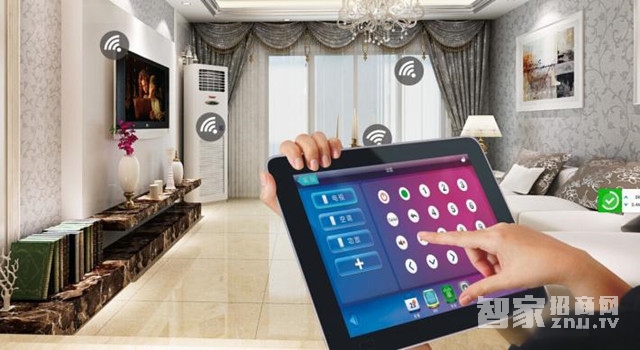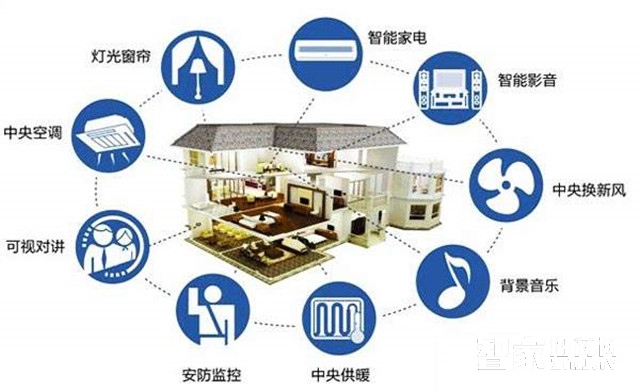In the article titled "Experience Sharing in Terminal Retail Market (II): Integration and Development of Smart Home + Decoration Design," I explored how smart home technology is being combined with interior design. I discussed the key selling points and unique features of this integration. Today’s article will take a closer look at where these advantages truly shine and how they enhance everyday living.
First, the Highlights of Smart Home and Interior Design Integration

The concept of a smart home goes beyond just adding high-tech gadgets. It's about creating a space that feels alive, intuitive, and responsive to human needs. By integrating smart devices—like intelligent lighting, automated locks, voice-controlled systems, and AI-driven security—into the design, we transform traditional elements like switches, sockets, and door locks into a seamless, user-friendly experience. This not only enhances comfort but also adds a touch of elegance, convenience, and safety to daily life.
Through thoughtful design, the fusion of smart technology and interior aesthetics can create an environment that feels both futuristic and warm. It blends the functionality of modern tech with the artistry of design, making it more than just a house—it becomes a personalized sanctuary. The final result is a living space that reflects sophistication, simplicity, and a deep sense of well-being.

Second, Pain Points in Traditional Interior Design
Understanding the pain points of traditional home design helps highlight the value of smart home integration. Many common issues arise from manual oversight or lack of automation. For example:
- What if there’s a gas leak, electrical fault, or fire hazard?
- What if you forget to turn off the water dispenser or leave lights on?
- What if someone enters your home without permission?
- What if you’re worried about leaving the house unsecured?
- What if elderly family members forget things or get lost?
- How do you help children improve their learning and focus?
- What if kids come home late and you’re busy working?
- How do you relieve stress after a long day?
- How to make family gatherings more engaging and meaningful?
- What if your home is robbed while you're away?
These are real-life challenges that smart homes are designed to solve. They act as a personal assistant, guardian, and even a companion, making life safer, easier, and more enjoyable.

Third, Solving Pain Points Means a Bright Future for Smart Homes
Smart home systems offer comprehensive solutions to these problems. With real-time monitoring, remote control, and automation, homeowners can manage everything from security to energy efficiency. Whether it's detecting leaks, managing appliances, or alerting you to intrusions, smart homes provide peace of mind and convenience.
Imagine being able to control your home from anywhere, ensuring that lights, locks, and security systems are always in check. You can even set up scenes—like “Goodnight†or “Leaving Homeâ€â€”to automate multiple actions with a single command. These features not only save time but also make life more comfortable and secure.
Smart homes also add value to family life. They can help children learn better through interactive tools, create a cozy atmosphere for family gatherings, and even act as a deterrent for intruders by simulating occupancy. In short, smart homes are not just about technology—they're about enhancing the quality of life.
So, is smart home the future for everyone? Absolutely. While each household has different needs, smart home solutions are becoming increasingly customizable. From basic automation to full-scale smart ecosystems, there's something for every budget and lifestyle. As the market evolves, smart home integration will become more accessible and essential.
Recommended Reading
Terminal Retail Experience (1): Smart Home Terminal Channels and Promotional Resistance
Terminal Retail Experience (II): Integration and Development of Smart Home + Decoration Design
Channel Retail Experience (3): Highlights and Selling Points of Smart Home Decoration Design
Channel Retail Experience (4): Smart Home Alien Alliance & Telemarketing Feedback
Channel Retail Experience (5): The Occupant Diversion of Smart Home Store Marketing
Channel Retail Experience (6): How Storefront Marketing Receives Whole-House Smart Experiences
Channel Retail Experience (7): Analysis of Price Differentiation for Smart Home Manufacturers
Channel Retail Experience (8): How to Track Smart Home Store Customers to Increase Conversion Rate
Channel Retail Experience (9): The Open and Communicative Road of the Whole House Smart Home System
Channel Retail Experience (10): Six Tips for Promoting Smart Home Community Promotion
-----------------------------------------
Editor: Aaron | WeChat: iot-professor
This article is protected under copyright. Unauthorized reproduction is prohibited without permission from the original author and Zhijia.com.
220Uh Inductor,High Current Inductor,Power Inductor,Toroidal Core Inductor
IHUA INDUSTRIES CO.,LTD. , https://www.ihuagroup.com
